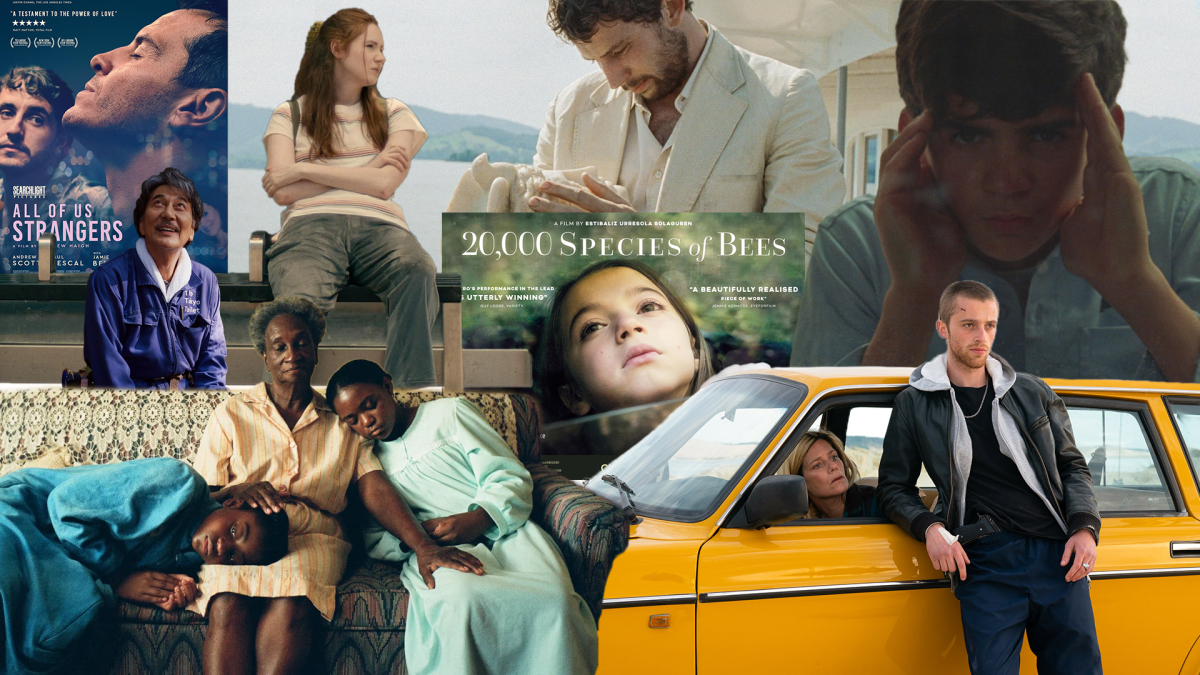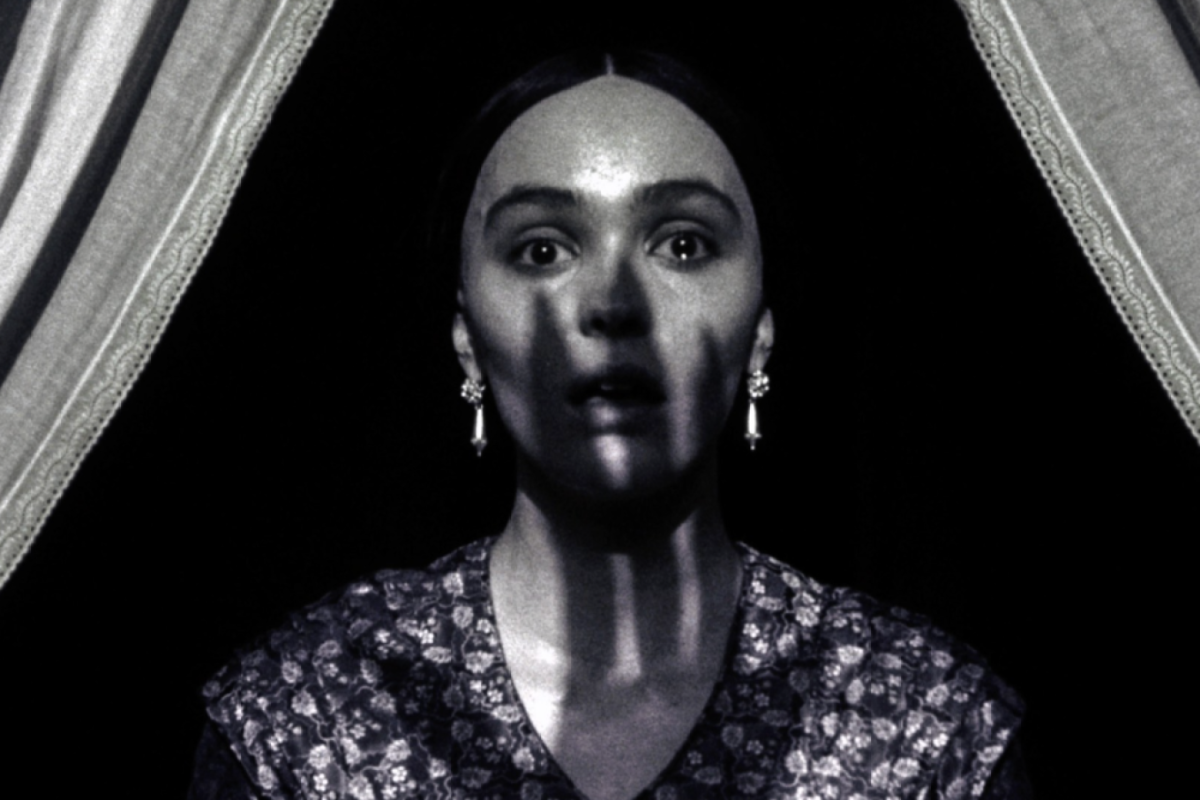The 32nd annual Whitaker Saint Louis International Film Festival (SLIFF) closed in late November after bringing 278 different films from a staggering 32 countries to the audiences of St. Louis. Through popular films from the year like “The Taste of Things” and “All of Us Strangers” as well as films by talented creators active in the industry like writer/director Alexander Payne (“The Holdovers”) and St. Louis Native Reginald Hudlin (“House Party”), The Whitaker Foundation paid tribute to a great year of cinema and celebrated 50 years of Hip-Hop. Here are some of the highlights from the festival to keep an eye out for as the year comes to a close.
“La Chimera”
The newest effort from Italian director, Alice Rohrwacher (“Happy as Lazarro”, “Le Pupille”), is an invigorating and enticing addition to an already electric year for cinema. Starring Josh O’Connor (“The Crown”) and Carol Duarte (“Invisible Life”), this stunning work, which competed in Cannes with a glowing reception, was picked up by the esteemed company, Neon, for North American film distribution and is slated to release in theaters late this year. This tomb-robbing drama achieves wonders in every regard and manages not only to be the best film from SLIFF, but perhaps the best film of the year.
The premise of a tomb-robbing period drama sounds like it has the potential to be somewhat of a wry and dry attempt at an introspective “Indiana Jones” figure, but with the power of an endlessly entertaining Italian chorus and the magical eye of Rohrwacher, this feature is able to excel both as a meditation on grief and an exploration of artifact. Consistently dynamic and imaginative camerawork imbues its 1980s Tuscan environment and the subjects residing in it with a sense of heightened realism that is somehow able to capture the magic of items and artifacts. It was effective in this attention to the details that the SLIFF audience was taken to gasping at the desecration of artifacts on screen. This careful curation of on-screen items (and the pursuit of them) allows the film to generate all of the expected effects of a typical adventure movie like wonder and terror while differing substantially in terms of its narrative structure. Despite the consistent whimsy and evocations of adventure, though, the aggressively human ensemble grounds the work in a level of deep relatability, culminating in an endlessly enjoyable and enchanting movie that is every bit of odd, enrapturing and moving that we’ve come to expect from Rohrwacher.
“Freestyle”
Positioning the unlikely friendship of depressed middle-aged nurse Louise Prunier (played by Marina Foïs) and misguided and awkward criminal Paul Faillard (played by Benjamin Voisin) into the internalized trappings of a buddy comedy, “Freestyle” includes both hilarious and heartwarming moments that knead themes of generational gaps, mental health and familial legacy into its narrative. Nearing her 45th birthday, Louise enters her car, hoping to go for a drive and release some of her mounting mental tension. Instead, every time she tries to exit the vehicle, she feels the beginnings of a panic attack, and, after running out of gas, her car is stolen and she is effectively kidnapped by Paul as he attempts to locate and murder the man who killed his brother in a car accident.
As the characters slowly begin to understand each other and bond through their trauma Voisin’s charisma truly sells these moments to the hearts of the audience, and a particularly comedic sequence comes when he pays a group of men to install a sunroof on Louise’s car (instead, they cut a square hole in the existing roof with a buzzsaw). While “Freestyle” doesn’t possess any necessarily innovative undertakings, its slow revelation of the softer sides of its characters, which gleam through Louise’s perfectly toned sarcasm and Paul’s violent youthful exuberance, provides the film with plenty of leeway to negotiate its imposed boundaries.
“Perfect Days”
A name that any cinephile will recognize, German filmmaker Wim Wenders (“Paris, Texas”) returns to the screen with a Japanese film that boasts easily one of the best leading performances of the year from Kôji Yakusho, who netted the prize for Best Actor at Cannes. The Japanese submission for the 2023 International Feature Oscar race is an intensely moving and meditative film and displays a patience that is both incredibly enticing and rewarding for the viewer as the narrative seems to ooze from the screen at its own leisurely pace. In the hands of Yakusho and Wenders, following a toilet cleaner in Tokyo through his daily routines turns out to be one of the most worthwhile moviegoing moments of the year.
Starting off largely dialogue-less, the viewer almost stumbles upon the plot as they go, feeling as if they’re intruding in the life of this person they, all of a sudden, seem to know. Initially leaning closer to the likes of Tsai Ming-Liang, this film allows the viewer to become acquainted with Hirayama, its main character, and then get to know him in that order. By the time he is put in a position to explain or justify his actions the audience finds themselves poised to defend these seemingly arbitrary routines, so established they are in the viewer’s eyes. The commitment to unfolding subtleties in this movie is as affirming of life as the likes of “It’s a Wonderful Life,” but never goes so far as to ignore the moments of loneliness and vulnerability that populate it. At once a captivating and satiating movie, “Perfect Days” sets out to prove that contentment lives in the minutia.
“All Dirt Roads Taste of Salt”
From the very first moments of this new feature from A24, it was obvious that this would be just as much a work of poetry as it was a film. Raven Jackson’s veritable mosaic of life as a young black woman in rural Mississippi is more experimental than narrative, but manages to deliver a delightful tale in the periphery of its meditations. Its attention to environments, delivered via an observant and unobtrusive camera, seems designed more to stir than to inspire or incite as it unfolds rather like a collection of poems rather than a cohesive plot; which is to say pleasantly but unconventionally.
Distinct and bold camera choices lend themselves to a unique and affecting viewing experience, from an intense focus on hands to frequent moments of hand-held that lend themselves to being rather dizzying and disorienting. In the same way that “The Taste of Things” seemed intent on conjuring sensual experiences, so too does Jackson seem determined to center on tactile ones with the attention to touching everything, from rain and dirt to fish scales. A life unfolds hand-first as the viewer comes to understand the life unfolding in front of them in terms of the things it is able to hold. Even its characters lend themselves to being more poetic with sparse and curated dialogue, lingering looks and vague reflection. While potentially disorienting for an unprepared audience, “All Dirt Roads Taste of Salt” is an experimental treat for those unafraid to stray off the beaten path.
“All of Us Strangers”
The closer of SLIFF 2023 and one of the most talked-about films of this fall sees Andrew Scott (“Fleabag”) and Paul Mescal (“Normal People”) unite in a fledgling relationship directed by Andrew Haigh (“45 Years”). This review will be kept both vague and brief as the film largely speaks for itself.
Scott delivers a wonderful performance as the lead that nails both the moments of lonely contemplation and intense turmoil while Mescal once again amazes with a complex and layered delivery that can’t truly be appreciated until the rewatch. An emotionally devastating roller coaster that had the entire audience sniffling more than once, this film is perfect for anyone who wants to treat themselves to a good cry.
“June Zero”
Jake Paltrow’s fourth feature-length film takes on the gravity of the fledgling Israeli government’s trial and capital punishment of Adolf Eichmann, the primary architect of the Holocaust. Told through the lens of three characters, a young Libyan immigrant who works at an oven factory to provide for his family, the lead guard for Eichmann during his imprisonment, and an upstart Israeli officer whose experiences at Auschwitz inform the film’s framing of the horrors which it engages with, “June Zero” takes an intensely humanist angle toward a pivotal point in the history of both Israel and the world.
Shot almost entirely on 16mm film, “June Zero” embeds a certain warmth into a narrative that guardedly engages with the intertwining of history and evil, and, in doing so, maintains a grounded perspective from which even Eichmann is portrayed as a rather feeble old man. While the political and cultural issues surrounding capital punishment are explored, it is more a pervading question of justice that is brought to the foreground. Is it possible to give any punishment which befits the murder of 6 million? This tension is not lost on the film’s external forms, and it comes across most notably when, in order to dispose of Eichmann’s body post-execution, the Israeli government must sponsor the construction of a crematorium based upon Nazi blueprints.
“June Zero” and its fascination with the shaping of history with our notions of wickedness and retribution crafts a distinctly compelling space that prompts reflection on the part of the audience. Much of the world has been educated on the unspeakable horrors committed by the Nazis, yet history’s understanding of the Holocaust has been continuously molded as the world attempts to reckon with the fact that such evils exist and have existed. “June Zero” presents a complex and humanist addition to this reckoning.
“20,000 Species of Bees”
Winner of both the Official Competition Grand Jury Prize at the Seattle International Film Festival and the Golden Biznaga for Best Spanish film at the 26th Malága Film Festival, “20,000 Species of Bees” depicts the heart-wrenching transformation of a family as their child, Lucia (played by Sofía Otero), whose given name is Aitor, explores her discomfort with her gender assigned-at-birth. When the family, at first living in France, travels to their grandmother’s home in rural Spain, they are able to escape the marital tensions that pervade their home life, but they are also forced to reckon with the legacy of their late grandfather, a sculptor whose collection of nude works caused great familial controversy to the traditional views of their older family. As the mother (played by Patricia López Arnaiz) uses her father’s abandoned workshop to work on her own art, Lucia finds comfort in her great aunt’s beekeeping hobby, which embodies both the tradition and legacy with which the film engages.
Although the film is paced rather slowly, this allows for the development of the characters to take full form, and, as the family finally reconciles themselves to the identity of their child, the audience is able to understand, in a complex fashion, Lucia’s turmoil.
This strategy allows for the character development to reach a complexity that truly reveals the depth of the family’s attempt to reconcile with their child’s identity. Director Estibaliz Urresola Solaguren said, in an interview with Spanish magazine Ideal, “The girl does not transform. Throughout the film, she acquires the tools to express who she is. What is transformed is the family.”
While the film is centered around Lucia, what is truly explored is the notion of family, and, as Lucia, according to tradition, taps on the beehives with a stick and proclaims her new identity, the audience is fully aware that a gravitational moment has occurred. Thus, the film has succeeded in its intentions. The spectators have begun to understand the depth of Lucia’s struggle for her identity.
“Late Bloomers”
Even though the target audience of “Late Bloomers” is clearly not the undergraduate population of SLU, its juxtaposition of the angst and impending doom of the late ‘20s with the same sentiments among those nearing the end of their life makes for a meaningful and, at times, overly-sentimental narrative of coming to terms with the process of aging. When Louise (played by Karen Gillan) drunkenly breaks her hip, she winds up in a physical therapy ward filled with people more than twice her age. Once the instantiated comedy of this event is run dry, she meets an elderly Polish lady (played by Margaret Sophie Stein) who continuously berates her, even though she speaks no English.
When Louise ends up as the paid caretaker for this woman, who is revealed to be Antonina, she receives the opportunity to understand her relationship with her own mother, who suffers from early-onset Alzheimer’s.
“Late Bloomers”, although it occasionally comes across as a thinly veiled piece on millennial aimlessness, eventually finds its way into a story that salvages its dignity and maintains its comedic aspects.
















